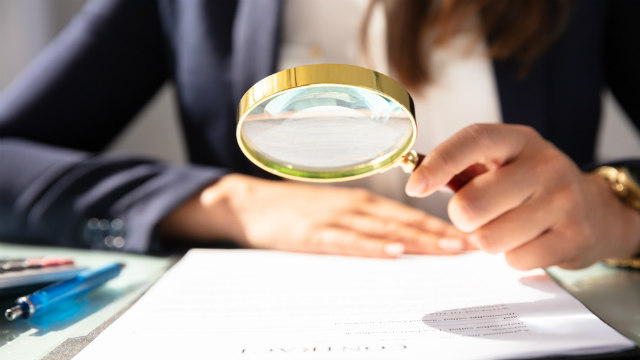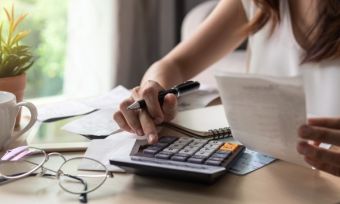If you’re thinking about accessing money from your super under the COVID-19 rules then it’s important to make sure you are really eligible. If not, you could land yourself in hot water with the tax office.
More than 2.4 million Aussies applied to withdraw some of their super as part of the first phase of the COVID-19 early release scheme. The second tranche began on 1 July and and traffic was so high that the Australian Taxation Office’s website crashed within half an hour of the new financial year.
But anyone thinking about accessing their super early needs to make sure they are actually eligible as the Australian Taxation Office (ATO) is paying close attention. The ATO recently announced that it was “zeroing in on fraud and schemes designed to take advantage of the government’s COVID-19 stimulus package”. Early release of superannuation is just one of the areas it will be focusing on as part of those efforts.
“We’ve received intelligence about a number of dodgy schemes, including the withdrawal of money from superannuation and re-contributing it to get a tax deduction,” said ATO Deputy Commissioner Will Day.
“Not only is this not in the spirit of the measure (which is designed to assist those experiencing hardship), severe penalties can be applied to tax avoidance schemes or those found to be breaking the law. If someone recommends something like this that seems too good to be true, well, it probably is.”
Are you eligible?
Before you jump online to request early access to your super it’s vital to take a close look at the eligibility criteria to make sure you fit the description.
According to the ATO to be eligible you have to be a citizen or permanent resident of Australia and New Zealand and “require the COVID-19 early release of super to assist you to deal with the adverse economic effects of COVID-19”.
In addition, one of the following circumstances must apply:
- you are unemployed
- you are eligible to receive one of the following:
- JobSeeker payment
- Youth Allowance for jobseekers (unless you are undertaking full-time study or are a new apprentice)
- Parenting Payment (which includes the single and partnered payments)
- Special Benefit
- Farm Household Allowance
- on or after 1 January 2020 either:
- you were made redundant
- your working hours were reduced by 20% or more (including to zero)
- you were a sole trader and your business was suspended or there was a reduction in turnover of 20% or more (partners in a partnership are not eligible unless the partner satisfies any other of the eligibility).
If you’re still uncertain you should check with the ATO or a tax professional. It’s also worth noting that although you may not need to attach evidence to support your application it’s important to keep records and documents that confirm you’re eligible as the ATO may ask you for evidence.

What the ATO is looking out for
Some of the behaviours that the ATO said are attracting its attention include:
- applying when there is no change to your regular salary and wage, or employment information
- artificially arranging your affairs to meet the eligibility criteria
- making false statements or fraudulent attempts to meet the eligibility criteria
- withdrawing and recontributing super for a tax advantage.
Common mistakes people are making
Some people may really believe they are eligible but have actually misunderstood the rules. An ATO spokesperson told Canstar that some of the common mistakes the ATO has seen include:
- People confusing ‘JobKeeper’ and ‘JobSeeker’. JobKeeper isn’t a qualifying government payment but rather is a subsidy to employers to contribute to their staff’s income.
- People incorrectly assessing their eligibility under the government payments criteria where the payment they are receiving is not specifically listed.
- People incorrectly assessing themselves as a ‘sole trader’ when, for example, they are a partner in a partnership.
- People mistaking ‘reduction in working hours’ for a reduction in salary where there has been no reduction in working hours.
- People applying in anticipation that their working hours may be reduced or there might be a change to their employment conditions which does not eventuate.
What to do if you think you have made a mistake
The best thing to do if you have applied but are now worried you weren’t eligible is to talk to someone. “If applicants are concerned that they have applied when they are not eligible and they are unsure how to proceed, they should seek the assistance of a tax professional or contact us on 13 10 20 to let us know. We will help them to remedy their position,” explained an ATO spokesperson.
“Applicants who are ineligible and do not take action to contact us may need to include the amount withdrawn as assessable income in their tax return and we may apply penalties.”
How the ATO is checking applications
There are a few ways that the ATO is keeping an eye out for any incorrect claims. In some cases the ATO might have spotted red flags when assessing the application and as a result it prevented super money from being released. In other cases, circumstances are reviewed after an application has been processed.
The ATO may also use data matching where it checks the information you provided against other sources. These may include Single Touch Payroll (STP), income tax returns, information reported by your super fund and third party data from agencies including Services Australia and Home Affairs. “For example, through STP we have real time information as to whether people are employed and how much they are being paid,” explains the ATO website.
The ATO has also established a confidential tip-off line which allows people to report someone they think is doing the wrong thing.
The penalties that may apply
If you have accessed your super but the ATO determines you were not really eligible there are a few possible consequences.
As mentioned earlier the ATO may ask for documents to prove you were eligible. If you can’t then the ATO may revoke its decision which will mean that the amount paid to you will become assessable income so you will need to include it in your tax return and you will pay tax on the released amount. This is more likely to be the case if the ATO thinks you made a genuine mistake.
If, on the other hand, the ATO believes you intended to make a false or misleading statement you could face penalties of more than $12,000 for each false and misleading statement.
The risks of accessing your super early
It’s important to stop and think carefully about whether taking money out of your super is the right decision for you. There are risks involved in withdrawing money from your super and one of the biggest is that it will mean less money for you in retirement.
To give you an idea of how much worse off you may be, consider this: A 30-year-old who has taken $10,000 out of their super could see themselves with $43,000 less at retirement according to numbers crunched by Canstar.
Some of the questions to ask yourself include:
- Are there any other options?
- Do you understand the long-term impact of accessing your super early?
- What will you do with this money?
- Does it make financial sense?
- Do you need expert independent advice?
If after weighing up your options you decide to go ahead you may consider adding money to your super to minimise the damage to your nest egg.
Canstar’s analysis shows that to catch up the 30-year-old mentioned earlier would only have to contribute $79 every month (before tax) in order to ensure they’re not losing out at retirement. If they take out $20,000 they would need to contribute an extra $153 each month to make up the difference.
Main image source: Michelle Lee Photography/Shutterstock.com
This content was reviewed by Editorial Campaigns Manager Maria Bekiaris as part of our fact-checking process.






Share this article